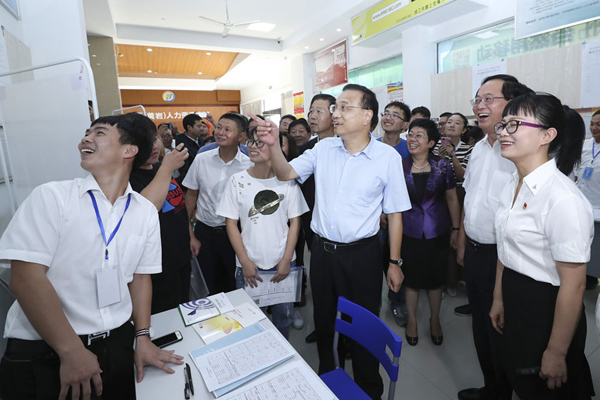
In an effort to reduce corporate burdens and expand employment, China will prolong the implementation period of reducing the unemployment insurance contribution rate, according to a decision made at a State Council executive meeting chaired by Premier Li Keqiang on Nov 2.
The current policy of reducing the combined unemployment insurance contribution rate from 3 percent to 1 percent will continue beyond its previous deadline of next April.
“With a complex environment at home and abroad, we will keep implementing favorable policies of tax and fee cuts to release positive signals and stabilize market expectations,” the Premier said.
A number of incentives to continue boosting employment also were decided on at the meeting.
“Employment creation is the primary mission of economic development and a fundamental livelihood issue for the people,” Premier Li said. “The general employment situation remains stable this year, with the number of urban jobs created in the first three quarters surpassing the government’s target for the whole year.”
“However, because of the complicated environment home and abroad, we are still expected to face considerable employment pressure, so we must take precautionary measures as much as possible to boost employment,” the Premier said.
It was decided at the meeting that companies who endeavor to minimize layoffs will be eligible to have 50 percent of their unemployment insurance expenses reimbursed in the form of reduced fees.
More support will be given to business start-ups as a way to boost employment, including through channels such as government guaranteed financing. Favorable policies also will be given to skills training.
The eligible jobless must be given unemployment insurance in a timely manner, whose payable medical insurance should be disbursed from the unemployment insurance fund. Local governments were urged to put employment work high on their agendas and provide measures adapted to local conditions.
Private businesses and medium, small and micro businesses are major job providers, which should be prioritized in the enactment of various employment policy incentives, the Premier stressed.
He also noted local governments and enterprises should be fully galvanized, providing them with flexibility in carrying out policies to boost employment.
